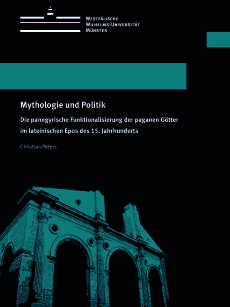The Panegyric Agenda of Pagan Gods in Latin Literature

Quattrocento humanism saw not just the return of the ancient gods to Latin epic, the most dignified of genres in Latin literature, it often brought them closer to the world of mortal men than they had ever been: Mercenary leaders fighting side by side with Minerva, Renaissance princes stepping up as champions of the Olympic Gods, the forces of Hades obstructing the prosperity of Renaissance states. Beyond doubt, divine machinery had been a key feature of the poets’ antique models and as such it had not only an intrinsic value of imitatio and aemulatio, but could also be instrumental in the patrons’ and poets’ pursuit of a political or panegyric agenda, fuelled by hopes that they could renew or imitate the most famous and influential joint-venture between poetry and politics in the history of European literature, the one between Augustus and Vergil, incorporated by the latter’s Aeneid. However, humanist epic poetry, unlike most of its classical predecessors, chose contemporary history as its favourite subject matters. Treating contemporary events poetically forced the authors to mediate between panegyric requirements, literary appeal and historical veracity. The pagan gods, were a foremost instrument for many a poet to tackle this challenge. Camouflaging military or political failures, rearranging constellations of power, signposting or stretching the individual hero’s virtues and victories were chief panegyric techniques required of a court humanist or otherwise politically involved poet that could be achieved by a strategic use of the divine machinery. This book focuses on the various functions pagan mythology and apparatuses of the divine could fulfil as a literary strategy, when authors set out to reconcile contemporary history and epic narrative, putting the pagan gods at the service of Christian heroes.

